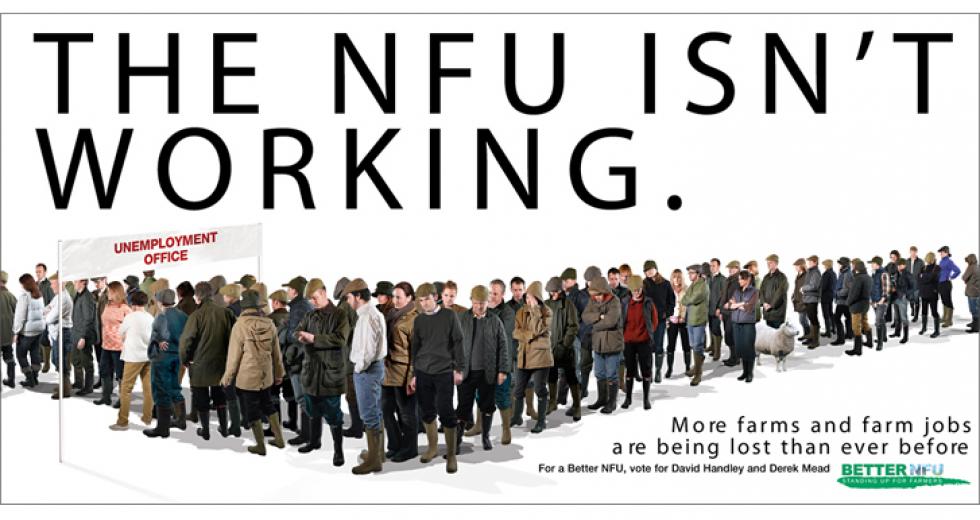
As has been widely reported, the planned badger cull, a government initiative in response to the alleged rise in Bovine TB in cattle, has been postponed. What is most interesting about the reports is that they highlighted the fact that the decision did not come from DEFRA, but did in fact come from the National Farmers Union, who claim to be a benign organisation that is simply a voice for farmers; not affiliated with any political party.
The Parliamentary Under-Secretary of State, Department for Environment, Food and Rural Affairs, Lord De Mauley, repeated to the House of Lords the following statement that Owen Paterson, Minister for DEFRA, made to the House of Commons:
Today I have received a letter from the president of the NFU on behalf of the companies coordinating the culls, explaining why they do not feel they can go ahead this year and requesting that they be postponed until next summer. In these circumstances, it is the right thing to do and, as they are the people who have to deliver this policy on the ground and work within the science, I respect their decision. I have placed a copy of the letter in the Libraries of both Houses.
Seems plain enough, even democratic perhaps, that an organisation may make a request of Government and Government should accede. However, the statement 'I respect their decision' was perhaps a slip up, since a decision is far more definite than a request and is not reliant upon a response - it goes beyond authority.
Taking a look at the letter that was sent out by the NFU to its members, Peter Kendall, President of the NFU, writes:
Therefore, along with the directors of the companies we have taken the decision not to proceed at this stage and to delay activity until as early as possible next year.
There is no mention of a request to government, or a decision being passed down from government. Peter Kendall is clearly of the belief that he and the directors of the companies involved have taken the decision.
The cull postponement has been attributed to bad weather, excessive populations of badgers, and a legal challenge from the Badger Trust.
Whilst the debate over whether or not a badger cull is necessary is important, what should be glaringly obvious is that more and more power is being exercised by companies and organisations that claim to be independent of government.
According to 'Corporate Watch', the UK government is legally obliged by the 1947 Agriculture Act to consult the National Farmers Union when making policy; a fact confirmed to the UK Column by the NFU.
It is not mentioned at all in the 'about us' section on the NFU Website that the organisation contributes to policy. Having spoken to a number of farmers about this, not one has said they knew the NFU was helping to shape policy directly.
The NFU's relationship with the Government is further supported by 'National Archives', which states, in regards to the NFU's inclusion in the 1947 Agriculture Act:
The government's aim was to maintain high levels of agricultural production through a system of guaranteed prices negotiated annually by the Ministry of Agriculture and the National Farmers' Union.
The unveiling of this close relationship will not surprise those farmers that believe the NFU was 'pulling the strings' during the Foot and Mouth disaster in 2001.
The NFU is a much more powerful Union than it appears. It does not change as Parliament changes and is therefore, in effect, much like a branch of the civil service; unelected by the wider public, but which does make and control government policy. How many farmers, or members of the non-farming community for that matter, are aware of this? Apparently not many, since the NFU only has 47,000 members actively farming (of the approximate 96,000 members in total). There are 300,000 or so active farms currently in Britain.
The NFU dubs itself the voice of farming, but how can it be? With little more than 15% of farmers actually members - many 'ordinary' farmers complain that they don't have time to take part, or that they believe the NFU does not represent their interests - if this was a democracy, a meagre 15% of support would not, and should not, allow an organisation to have a say in the making of policy which will effect not only farmers but the wider public as well.
Internally, the NFU appoints its officials to a council that is appointed by the NFU council. When asked how councillors were appointed, the NFU representative explained that councillors worked there way up 'through the ranks' of various policy boards, elected by the NFU council.
The NFU does permit farmers a vote, but those votes do not necessarily correlate with the outcome, since it is the NFU council which casts the final and deciding vote. It is not clear whether the council is obliged to represent the opinion of the NFU members, or exactly what the finer details of how the council operates are. The NFU representative suggested that those would be clarified in the NFU's constitution, but that it is only available to members; a submission confirmed by the NFU website. This in itself is a remarkable admission - it seems that one cannot view the constitution before consenting to it.
It is becoming clear is that our nation is being governed and manipulated by various organisations, companies, quangos and NGOs that, unknowingly to the public – and unelected by the public – are shaping the policies that effect our daily lives. That is not to say that the NFU does act nefariously, but the opportunity is there and as events are demonstrating, power is regularly abused for the benefit of a an individual or small elite. Democracy must be truly representative of the people, or there is no democracy.
